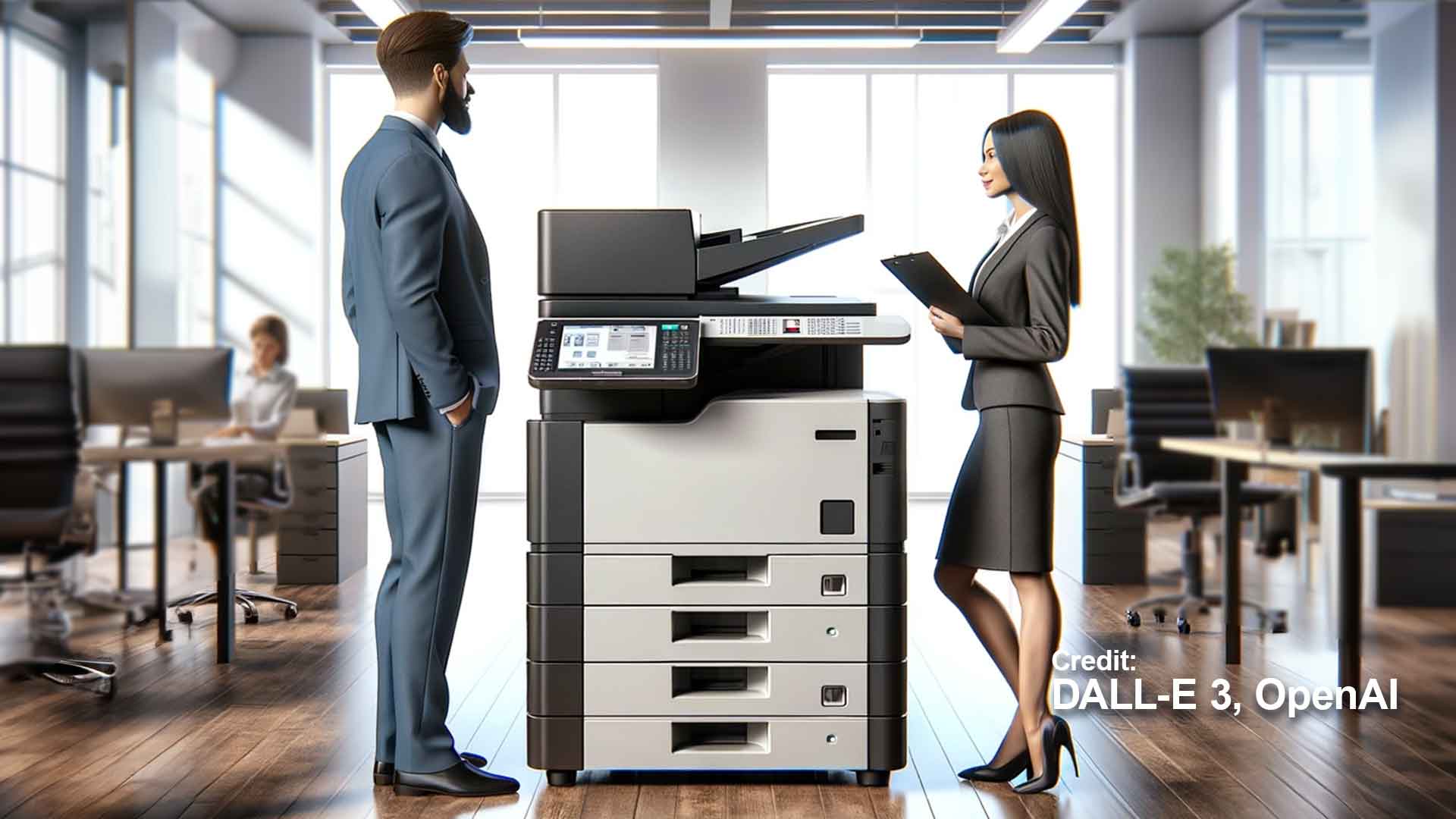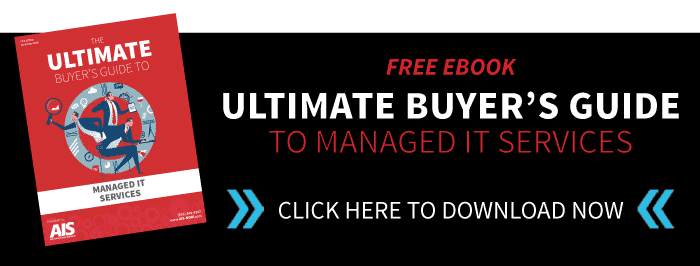Office Copy Machines: What To Know Before You Buy
January 17th, 2024 | 5 min. read

In the realm of business operations, the presence of an efficient office copy machine is a cornerstone for ensuring smooth administrative workflows. In an era where digital and paper-based processes coexist, selecting the correct copy machine becomes a pivotal decision for any business, big or small.
This article aims to equip you with essential knowledge and considerations before you make this crucial investment.
From understanding your specific copying needs to evaluating long-term costs, we'll cover everything you need to know to choose the best office copy machine that aligns with your business requirements.
Whether you plan to buy your first machine or upgrade an existing one, this article will serve as your comprehensive roadmap.
Understanding Your Copying Needs
One piece of advice that we give our customers and prospects is to list the current copying problems you’re facing and features you utilize or need every day. By doing so, you’ll give yourself a better idea of your individualized copying and printing needs.
Assessing Volume and Speed
Before diving into the market to buy a copy machine, assessing your office's copying volume and speed requirements is imperative.
The daily volume of print jobs significantly varies from one organization to another. A small business might do well with a machine that handles a few hundred copies daily, while larger corporations may require devices that efficiently manage thousands of pages daily.
Similarly, speed plays a crucial role—measured in pages per minute (ppm). A higher ppm rate is essential for environments where quick turnaround is critical.
It's not just about quantity; speed ensures your office workflow remains uninterrupted.
Features and Functionality
Beyond the basics, modern office copy machines offer a plethora of features. Duplex printing (double-sided printing), scanning capabilities, network connectivity, and even cloud-based functionality are now standard in many models.
It’s critical to evaluate which features align with your office's workflow. For instance, if your business frequently deals with document digitization, a machine with high-quality scanning capabilities should be a priority.
Also, consider the ease of use and user interface – a complex machine might offer various functionalities but could become a bottleneck if it's not user-friendly.
In the next section, we'll explore the different types of office copy machines, helping you understand which kind best suits your specific needs.
The Types of Office Copy Machines
Choosing the right type of office copy machine is crucial for meeting your business's specific needs. The market offers a variety of options, each with its own set of features and benefits. So, understanding these differences is critical to making an informed decision.
Inkjet vs. Laser Printers
The primary distinction in office printers lies between inkjet and laser technologies. Inkjet printers, known for their ability to produce high-quality color prints, are ideal for offices that require detailed graphics and images. They work by spraying tiny droplets of ink onto the paper.
On the other hand, laser printers use toner and are celebrated for their speed and efficiency, especially regarding black-and-white documents. They are typically more cost-effective for high-volume printing, making them suitable for environments where large quantities of text documents are printed regularly.
Multifunction Printers (MFPs)
Multifunction Printers (MFPs) are an increasingly popular choice in modern offices. These devices consolidate printing, copying, scanning, and sometimes faxing into a single machine.
MFPs are also a smart choice for offices looking to save space and improve efficiency. They come in both inkjet and laser models, allowing businesses to choose based on their specific printing needs.
Integrating various functionalities into one device saves physical space, streamlines office operations, and can be more cost-effective than purchasing multiple separate devices.
Cost Considerations
When investing in an office copy machine, it's essential to consider both the initial purchase price and the long-term operational costs.
Initial Purchase Price
The upfront cost of a copy machine can vary significantly based on its type, features, and brand. Generally, inkjet printers have a lower initial cost compared to laser printers.
However, multifunctional devices, due to their added capabilities, might come with a higher price tag. It's essential to balance the initial investment with your office's specific needs.
Long-Term Maintenance and Supply Costs
The long-term costs of operating a copy machine include maintenance, ink or toner replacements, and repairs.
Laser printers, while more expensive initially, tend to have a lower cost per page and might be more economical in the long run, especially for high-volume printing environments.
Inkjet printers, with cheaper upfront costs, can have higher ink costs, which can add up over time.
Additionally, consider the machine's energy efficiency as it contributes to ongoing operational costs. Regular maintenance and timely repairs are crucial to ensure the longevity and efficient operation of the machine, so factor in these aspects as well.
Features to Look For
When shopping for an office copy machine, certain features can significantly enhance its utility and efficiency in your workplace.
Connectivity and Network Capabilities
In an age where digital connectivity is paramount, look for a copy machine with robust network capabilities.
Wireless connectivity, such as Wi-Fi or Bluetooth, allows for seamless integration into your office network, enabling employees to print from various devices, including smartphones and tablets.
Network connectivity also facilitates easier management and monitoring of print jobs and machine status, which is crucial for larger offices.
Security Features
The security of sensitive documents is a key concern in many businesses. Advanced office copy machines come equipped with security features like user authentication, data encryption, and secure printing, which ensures that confidential documents are safeguarded.
These features are significant in environments where sensitive material is regularly printed or copied.
Related Article: Kyocera Copiers: Top Security Features You Need.
Making a Smart Purchase
With a clear understanding of the types, costs, and features to look for, the next step is to make a well-informed purchase decision.
Comparing Brands and Models
Different brands and models offer varying features and price points. Researching and comparing these can help you find a machine that not only fits your budget but also meets your specific needs.
Make sure to look into after-sales support and service warranties, as they can be crucial in the long run.
Reading Reviews and Seeking Recommendations
Reading customer reviews and seeking recommendations from peers can provide practical insights into a machine's real-world performance and reliability.
Reviews can highlight potential issues or benefits that might not be immediately apparent from product specifications alone.
Your Next Steps: Make The Best Purchase For Your Business
Investing in the right office copy machine is a decision that can significantly impact your business's efficiency and workflow.
By understanding your copying needs, evaluating the types and costs, and considering essential features, you can make an informed choice.
Remember to compare different brands and models, read reviews, and seek recommendations to ensure you buy a copy machine that meets your office's specific requirements.
Your next steps should involve finalizing your budget, listing your must-have features, and beginning the search for the perfect office copy machine. With the proper preparation and knowledge, you're ready to make a purchase that will serve your business well for years to come.
A true southerner from Atlanta, Georgia, Marissa has always had a strong passion for writing and storytelling. She moved out west in 2018 where she became an expert on all things business technology-related as the Content Producer at AIS. Coupled with her knowledge of SEO best practices, she's been integral in catapulting AIS to the digital forefront of the industry. In her free time, she enjoys sipping wine and hanging out with her rescue-dog, WIllow. Basically, she loves wine and dogs, but not whiny dogs.

